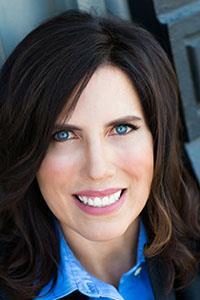In the halls of shipping and logistics company MODE Global’s legal department, two innovators share their insights by giving employees compliance foresight.
Chief Legal and Compliance Officer Sharon Johnson is wise and astute, while Corporate Paralegal Heather Sudo is sharp in her pursuit.


Through clever rhymes and real-life examples, Johnson and Sudo have made it their mission to think outside the box when it comes to compliance engagement and awareness. Their creative approach earned them the distinction of being the first joint winners of Compliance Innovator of the Year at the 2024 Excellence in Compliance Awards.
MODE employs more than 500 people, with agents in more than 230 locations across North America. The company offers multi-mode shipping via truck, less than truckload, rail, air/ocean, and parcel services.
Last year, MODE was ranked 32nd among the Top 100 logistics companies by Transport Topics.
“Misconduct most often arises from good people making poor choices in challenging situations, not bad people purposely acting nefariously,” Johnson said, emphasizing the importance of creating engaging training to promote compliance throughout the organization.
Compliance training can be difficult for employees to retain though, especially within larger organizations when it isn’t necessarily tailored for function. With this in mind, Johnson and Sudo set out to innovate compliance training through internal awareness campaigns.
“I think our main goal was to have fun,” Sudo said, using the company’s “Fall in Love with Compliance” initiative as an example.
“Roses are Red, Violets are Blue, Compliance costs less than a lawsuit—or two,” read MODE’s Valentine’s Day-themed poetic prose, which employees received along with candy.
“A few Hershey Kisses aren’t going to break the bank,” Sudo quipped.
While Johnson and Sudo’s witty wordplay is lighthearted, the subject matter is serious. The company’s “Something Fishy? Speak Up!” poster further illustrated this balance.
MODE’s “Camp Compliance” communication campaign, which alerts employees to red flags like falsified invoices, provides real-life examples of how its claims department “stopped fraud in its tracks.”
“One real example happened when our claims department thought that a tank wash invoice looked inflated,” the communication stated. “Claims called the company who issued the invoice and confirmed that the invoice submitted by the carrier had been doctored so that it was thousands more than the real invoice.”
More Excellence in Compliance Awards
- CCO of the Year: Gina Nese stays ahead of the curve
- Compliance Program: Revamped compliance at Albemarle
- Lifetime Achievement: Compliance lessons from a ‘Flea’
- Compliance Mentor: Q&A with Melanie Sponholz
- Rising Star: Q&A with Giovanni Corrado
Real-life scenarios like this, Johnson said, help in emphasizing the importance of a speak-up culture.
“They illustrate the tangible impact of vigilance and integrity, making the concept of compliance more relatable and actionable for our employees,” she said. “These stories not only highlight the potential risks but also celebrate the proactive efforts of our team members, reinforcing the message that everyone plays a vital role in maintaining our ethical standards.”
Enhancing the culture of compliance was a significant effort, Sudo said, with a focus on making sure employees feel comfortable asking for help.
“The goal isn’t to embarrass anybody or penalize them for information they don’t know,” she said. “It’s to make sure that the information is out there.”
In a recent engagement survey, Johnson said compliance awareness scored as one of the top three highest in the company, indicating knowledge of how to report a compliance or ethics concern. Nearly three quarters of employees—72 percent—responded favorably to the statement: “MODE’s compliance programs encourage employees to report suspected wrongdoing so it can be investigated and properly addressed.”
“We’ve noticed that employees are quicker to reach out informally when something seems off,” Johnson said. This demonstrates speak-up culture has been embraced by employees through a cultivated culture of compliance, she added.
These metrics show MODE’s commitment to compliance within its own walls. For third-party vendors, Johnson said, the company has revised supplier codes of conduct and enhanced tools to scrutinize denied or restricted parties.
“Effective screening is crucial to prevent unauthorized transactions … whether we’re strengthening our risk-based assessments, improving mechanisms for monitoring, or automating processes to improve business efficiency,” she said.
Regarding automation, which will allow Sudo to focus on more strategic work, the team leans into technology to improve its compliance posture and vendor management, Johnson said. Providing guidance to elevate contractor awareness of MODE’s compliance obligations is an important factor in its third-party relationships, she added, with her team continuing to enhance awareness of important issues, including through its supplier code of conduct.
Being cost effective is often the bottom line for most compliance departments. At MODE, Johnson and Sudo have found ways to innovate without overspending.
“One of my favorite quotes is, ‘If you think compliance is expensive, try noncompliance,’” Sudo said, echoing former U.S. Deputy Attorney General Paul McNulty. “It’s true; compliance isn’t an issue until it is.”


















No comments yet